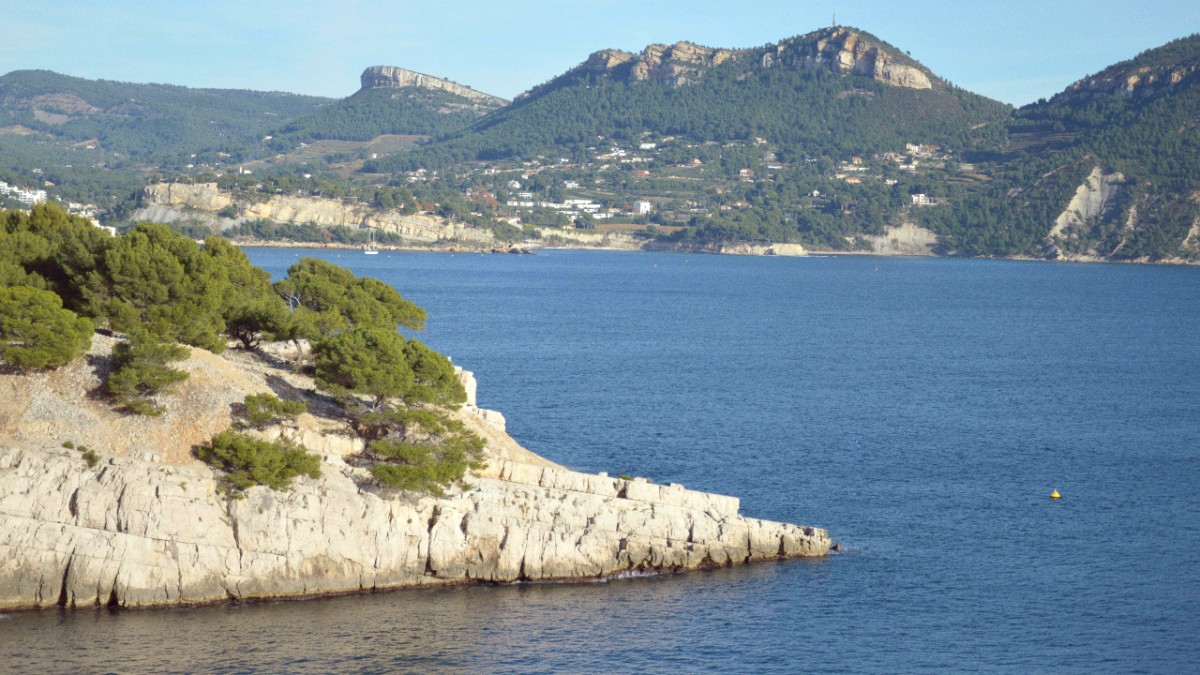
France
Cassis enjoys a Mediterranean climate, characterized by warm, dry summers and mild, often sunny, but wetter winters. Each season presents different conditions. High season (July-August) has the warmest weather for swimming, but significant crowds, higher prices, and frequent Calanques access restrictions due to fire danger are common. Intense heat can make outdoor activities uncomfortable.
Shoulder season (April-June, September-October) has pleasant temperatures, fewer crowds, and generally lower prices. The Calanques are typically accessible for hiking. Swimming is comfortable from June through September. Low season (November-March) has the fewest crowds and lowest prices. Mild winter days are pleasant for quiet exploration, but the Mistral wind can make it feel colder.
France is part of the Schengen Area. Citizens of many countries (e.g., India, China) need a Schengen visa. Apply to a French consulate. Visa-exempt citizens (e.g., US, Canada, UK) do not need a visa for short stays (up to 90 days). From mid-2025, non-EU visa-exempt citizens will need an ETIAS authorization. For stays over 90 days, a long-stay visa (student, work, family) is needed. Have your passport (valid 3 months beyond departure, issued in last 10 years, 2 blank pages), proof of onward travel, accommodation, and sufficient funds. Travel insurance is mandatory for Schengen visa applicants, and highly recommended for all travelers. Check IVisa or VisaHQ for services.
No general entry fees apply. For health, routine vaccinations are advised; consult a travel doctor. No special permits are needed for general tourism or Calanques National Park activities, but adhere to park regulations, especially regarding fire risk.
Warmest weather, lively atmosphere.
Ideal for swimming, all attractions open.
Large crowds, higher prices, Calanques access often restricted.
Pleasant temperatures, fewer crowds.
Good for hiking, better prices, sea warm (June-Sept).
Cooler water early/late season, some services reduced in late Oct.
Fewest crowds, lowest prices.
Authentic local experience, mild days if no Mistral wind.
Cooler temperatures, strong Mistral winds, shorter daylight, some closures.
The official currency is the Euro (€). ATMs are widely available and typically offer the best exchange rates. Check with your bank about foreign transaction fees. Credit/Debit cards (Visa, MasterCard, Amex) are widely accepted; notify your bank of travel dates. Currency exchange offices offer less favorable rates.
Tipping is not mandatory in France as a service charge ("service compris") is usually included in the bill. Round up the bill (e.g., €1-€5) for excellent restaurant service. Small change is common for bar drinks. For taxis, round up or add 5-10% for good service. A small tip (€1-€2) for hotel porters or housekeeping is customary. Consider €5-€10 per person for a half-day tour guide.
Hostel/budget guesthouse, supermarket groceries, public transport, free activities (Calanques hiking).
Comfortable hotel/apartment, mix of casual/nicer dining, public transport with occasional taxis, paid attractions (boat tours, wine tasting).
Luxury hotel/villa, fine dining, private transfers/car rentals, exclusive tours.
€70-€500+ per night.
€15-€150+ per day.
Cassis is generally very safe, known for its low crime rates. Like any popular tourist destination, pickpocketing can occur in crowded areas. Remain vigilant.
The Mediterranean sun can be intense. Use Broad-spectrum sunscreen (SPF 30+) and wear hats and Sunglasses. Carry plenty of water to prevent dehydration. If hiking in wooded areas, check for ticks. Jellyfish may appear in coastal waters. A small First aid kit with antiseptic wipes and plasters helps with minor cuts.
France boasts an excellent healthcare system. Pharmacies (Pharmacie), marked by a green cross, offer advice for minor ailments. For non-emergency medical issues, consult a local doctor (Médecin). For serious emergencies, proceed directly to the nearest hospital emergency department (Urgences), like Hôpital La Timone in Marseille.
Approximate daily costs (per person) for different travel styles.
Thoughtful packing and digital preparation contribute to a smooth and comfortable trip to Cassis.
Light layers, t-shirts, light trousers, light jacket/cardigan for evenings. A lightweight scarf is versatile.
Lightweight, breathable fabrics (cotton, linen), shorts, sundresses. Sun protection (Hat, Sunglasses, UV clothing).
Long-sleeved shirts, sweaters, warm trousers. A warm, waterproof or windproof jacket. Warm scarf, hat, and Gloves for colder days.
Select footwear tailored to your activities.
For general walking and sightseeing in town, Comfortable walking shoes or sturdy Sandals are suitable. For hiking in the Calanques, robust Hiking boots or Trail shoes with good grip are necessary for the rocky, uneven terrain. Flip-flops or Fashion sneakers are not safe for these trails. For pebble beaches, Water shoes or sturdy sandals protect your feet. For upscale dining, dressier shoes may be appropriate.
Cultural note: Modest attire (covered shoulders/knees) is advisable when visiting churches, though less strict than major cathedrals.
Your valid passport and any required visa or ETIAS authorization. Keep physical and digital copies.
Carry physical and digital copies of your policy details for emergency access.
Printed and digital copies of flight, hotel, and tour bookings. A physical list of emergency contacts (family, embassy, bank).
A well-stocked personal health kit and medical documentation are a good idea for any journey.
Modern travel relies on technology. Pack the right items to stay connected.
France uses 230V, 50Hz, Type E plugs. Bring a Universal travel adapter. Ensure devices are dual voltage. Consider a local SIM card (Orange, SFR, Bouygues, Free Mobile) or eSIM (Airalo) for affordable data. A Power bank keeps devices charged.
A Smartphone camera for casual photos. For serious photographers, a mirrorless or DSLR with Wide-angle/Telephoto lenses from B&H Photo. An Action camera (GoPro) for water activities. A Waterproof dry bag protects your gear.
Google Maps/Maps.me for navigation (offline option). Google Translate (offline pack) or DeepL Translate. Uber for ride-sharing (limited in Cassis). Météo-France for local weather. Routinely back up photos and documents to cloud storage or an External hard drive. Consider NordVPN or ExpressVPN for secure browsing.